Not sure what to get for the blogger in your life? In need of a present for an urban explorer, banker, or activist? Take a look at our Christmas book guide.
For Ed’s biggest fan…

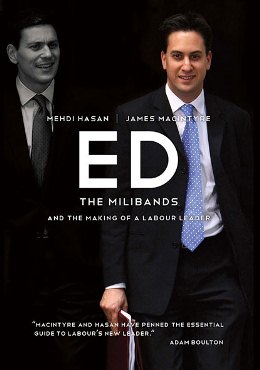 Matthew Partridge finds that Ed: The Milibands and the Making of a Labour Leader will appeal to both the casual reader and those studying British politics in more depth.
Matthew Partridge finds that Ed: The Milibands and the Making of a Labour Leader will appeal to both the casual reader and those studying British politics in more depth.
Find this book: ![]() Amazon
Amazon
Writing the first major biography of a political figure, which is what Mehdi Hasan and James Macintyre have done with Ed: The Milibands and the Making of a Labour Leader, is always challenging. The first major work looking at Margaret Thatcher did not reach the public until a year after she entered Downing Street and five years after her election as Conservative leader. Even though publishers would be quicker to respond to the rise of John Major, Tony Blair, William Hague and others, they all had relatively substantial parliamentary careers from which their biographers could draw from. Indeed, the only recent party leader with a comparably thin record was David Cameron, the present occupant of Downing Street. Continue reading
For a die-hard Brownite …

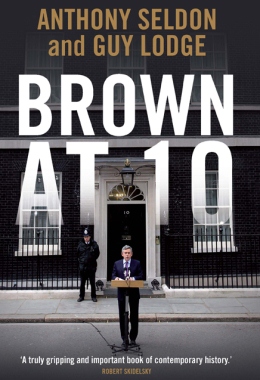 Suki Ferguson finds Brown at 10 to be a candid gem of political history, in which the former Prime Minister comes across as a man of sincere principle.
Suki Ferguson finds Brown at 10 to be a candid gem of political history, in which the former Prime Minister comes across as a man of sincere principle.
Find this book: ![]() Google Books
Google Books ![]() Amazon
Amazon
Brown at 10 was published at the end of 2010, just six months after Brown himself shut that famous door behind him once and for all. You might expect a rush-job, but Anthony Seldon is a master of modern political history – in the past twenty years he has written 15 books on UK politics, including an acclaimed account of Tony Blair’s time as Prime Minister, plus several accounts of Conservative leadership. He proves to be an thorough yet judicious guide to Brown’s time as leader. An insider’s perspective is ably supplied by Guy Lodge, an IPPR political consultant and one-time Brown advisor. Continue reading
For the total Tory…

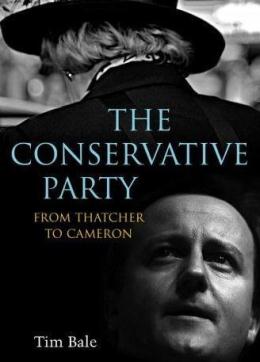 Steve Coulter finds an excellent and readable account of how the Conservatives have turned themselves around in Tim Bale‘s new book.
Steve Coulter finds an excellent and readable account of how the Conservatives have turned themselves around in Tim Bale‘s new book.
Find this book at: ![]() Google Books
Google Books ![]() Amazon
Amazon
The Conservatives are allegedly the Western world’s oldest and most successful political party, dominating British politics in the nineteenth and twentieth centuries thanks to their ruthless fixation with gaining and maintaining power. Ideology, loyalty to the leader and internal democracy were all subordinated to this end. Strange, then, that between Margaret Thatcher’s ousting in 1990 and David Cameron’s election as party leader in 2005 (it would be five more years before he became Prime Minister) the Conservatives violated their tried and tested principles by doing everything they could to sabotage themselves.
The title of Tim Bale’s excellent book pays obvious homage to Robert Blake’s seminal history of an earlier and happier Tory period, The Conservative Party from Peel to Thatcher. Bale, however, is a political scientist rather than a historian and his more theoretical perspective foregrounds the competing salience of ‘ideas, interests and institutions’ in accounting for the party’s long exile from power. Continue reading
For the blogger…

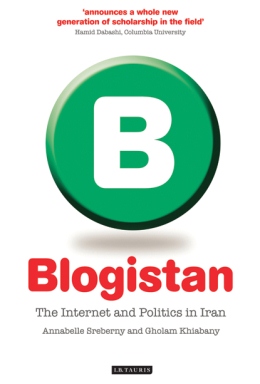 Asiya Islam reviews a book on the special significance of blogging in Iran, concluding it is a must read for those interested in the Middle East, media studies, or free speech.
Asiya Islam reviews a book on the special significance of blogging in Iran, concluding it is a must read for those interested in the Middle East, media studies, or free speech.
Find this book: ![]() Google Books
Google Books ![]() Amazon
Amazon
Iran and blogging. Most of us, when encountering the relationship between the two, would probably think about conservatism and the extent of repression in the Islamic Republic of Iran. Arrests of some prominent Iranian bloggers, such as Hussein Derakshan, popularised through the Western media would also spring to mind. But not many of us would know that Persian is one of the most used languages in the blogosphere or that there are almost 700,000 active Iranian bloggers. This is precisely why the bookBlogistan: The Internet and Politics in Iran is a must read for those interested in media studies, the Middle East or politics in general.
The book by Anabelle Srebarny (School of Oriental and African Studies) and Gholam Khiabany (London Metropolian University) offers a very interesting insight into the working of the Republic, its contradictions and its modern narrative underwritten by the emergence of the internet and blogging. Continue reading
For the activist…

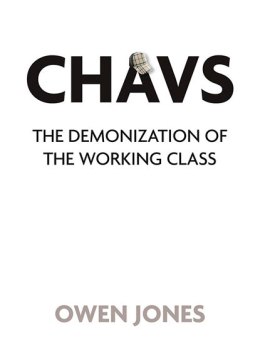 Carl Packman finds that Owen Jones’s Chavs is a persuasively argued and passionately written book, focusing on how New Labour policies were sometimes steeped in Tory middle class triumphalism.
Carl Packman finds that Owen Jones’s Chavs is a persuasively argued and passionately written book, focusing on how New Labour policies were sometimes steeped in Tory middle class triumphalism.
Find this book at: ![]() Google Books
Google Books ![]() Amazon
Amazon
Few first time authors have been able to spark as much debate about a subject as Owen Jones has with his new book Chavs: The Demonization of the Working Class. A glance at the search results for chavs on Google, only a few days after the book’s release, shows how much Jones has dominated the conversation on the controversial word, and its wider political connotations.
Not only has he managed to grab the attention of the mainstream press and blogosphere, but he has done it in a broadly supportive way. While Polly Toynbee has given a glowing recommendation of the text, The Independent made it their Book of the Week. Jones has written, not a myth-busting book setting the world right about what is or is not a ‘chav’, but a reminder of the institutional demonization of the working class in general. His point, however, is not that working class people can be reduced to the status of a chav – rather, the mythical ideology of aspiration, from Thatcher through to Blair, has all but rid the working class of its pride. Continue reading
For the urban explorer…

 An orgy of photographs, diagrams, maps, statistics and essays make Living in the Endless City an elegant and lucid investigation into the best and worst aspects of our increasingly globalised society, finds Amy Thomas.
An orgy of photographs, diagrams, maps, statistics and essays make Living in the Endless City an elegant and lucid investigation into the best and worst aspects of our increasingly globalised society, finds Amy Thomas.
Find this book: ![]() Google Books
Google Books ![]() Amazon
Amazon
In recent years, the terms ‘globalisation’ and ‘urbanisation’ have become almost synonymous in academic and popular lexicon. With over half of the world’s population living in urban regions that make up just two per cent of the earth’s surface, the efficacy, efficiency and equity of some of the world’s most prominent cities has been a subject of fascination and necessity for researchers. This book takes three cities, Mumbai, Sao Paolo and Istanbul, subjecting them to a rigorous extraction of statistical data, which is then graphically represented and dispersed throughout collections of essays concerning the socio-political and geographical landscape of each case study. In an orgy of full-bleed photographs, bold diagrams, GIS-produced maps and shocking statistics in oversized fonts, the publication falls into the David McCandless (Information is Beautiful) and Edward Tufte (Beautiful Evidence) school of information presentation. Continue reading
For the conspiracist…
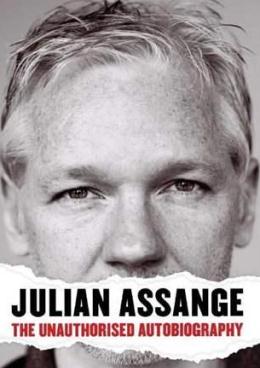
 Released by his publishers without consent, Julian Assange’s autobiography provides readers with most authentic portrait of the Wikileaks founder, reviewed by Charlie Beckett.
Released by his publishers without consent, Julian Assange’s autobiography provides readers with most authentic portrait of the Wikileaks founder, reviewed by Charlie Beckett.
Find this book: ![]() Google Books
Google Books ![]() Amazon
Amazon
Julian Assange may be paranoid, but they are out to get him. The release ofThe Unauthorised Autobiography by Canongate delivers no new facts, but the tone of this accidental memoir speaks volumes about the personality of the man.
WikiLeaks is a profound challenge to the status quo in journalism and politics. It has achieved the biggest disclosure of classified information in modern history. In my forthcoming book I look at whether it is a one-off freak or a model for the future of political communications. But this latest volume – and because of its controversial genesis it should be treated with caution as evidence – gives us the voice of the man behind the most sensational media adventure of the digital age. Continue reading
For the banker…

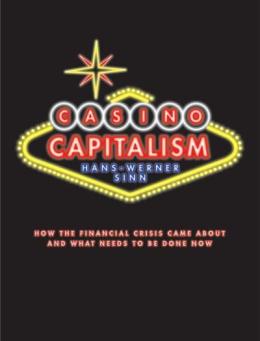 Nick Taylor finds Hans-Werner Sinn‘s recent book to be an excellent point of reference for understanding the economic trends leading up to 2007, but senses the author’s tensions around opportunities for structural reform.
Nick Taylor finds Hans-Werner Sinn‘s recent book to be an excellent point of reference for understanding the economic trends leading up to 2007, but senses the author’s tensions around opportunities for structural reform.
Find this book at: ![]() Google Books
Google Books ![]() Amazon
Amazon
Hans-Werner Sinn’s book on the financial crisis comes at a time when new regulatory rules and bodies are struggling to provide a solution to a global banking problem. In particular Basel III, the third wave of regulations dealing with capital and liquidity requirements for banks, should be implemented by the G20 nations by the end of this year. In the UK the government has just published its own regulatory response to the crisis, including a new ‘financial services watchdog’to replace the beleaguered Financial Services Authority (FSA). The coalition’s austerity programme is about to step up a gear in the face of growing public resistance and even the unlikely radical, Bank of England Governor Mervyn King, is urging us to remember the excesses of the banking world as it does so. Continue reading
For the economist…

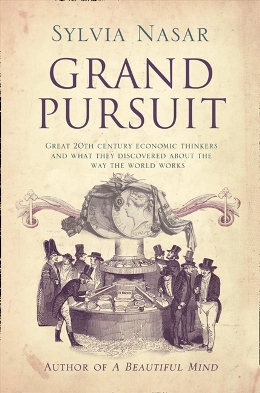 Sylvia Nasar’s tour through the past 170 years of economic history introduces the reader to a dozen of the discipline’s most important figures, an equally compelling supporting cast, and the key economic events which shaped them, finds Garrick Hileman.
Sylvia Nasar’s tour through the past 170 years of economic history introduces the reader to a dozen of the discipline’s most important figures, an equally compelling supporting cast, and the key economic events which shaped them, finds Garrick Hileman.
Grand Pursuit: The Story of Economic Genius is a book that I have been looking forward to reading with great anticipation. Sylvia Nasar’s previous work, A Beautiful Mind, provided an extraordinary journey into the pairing of creative genius and mental illness. The author’s remarkable account of Nobel Prize winner John Forbes Nash also masterfully reconstructs what was arguably the modern era’s golden age in mathematics – mid-20th century Princeton University. Nasar’s portrait of this world and its cohabitants, which included intellectual giants such as Einstein, von Neumann, Oppenheimer, and Gödel, was utterly mesmerizing. Continue reading
For the historian…

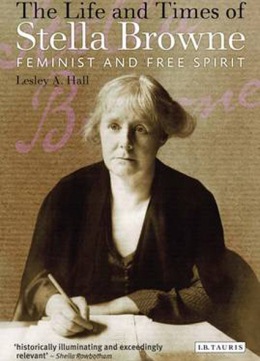 Reading this book for me is reminiscent of feminist blogs today. I felt like I was in a coffee shop, listening to a story being told about one of the women who helped create and change the landscape women’s lives and sexuality. Ashley Mog reviews a book charting the life of an early abortion rights campaigner.
Reading this book for me is reminiscent of feminist blogs today. I felt like I was in a coffee shop, listening to a story being told about one of the women who helped create and change the landscape women’s lives and sexuality. Ashley Mog reviews a book charting the life of an early abortion rights campaigner.
Lesley Hall charts the life of the “feminist and free spirit”, early twentieth century radical feminist and abortion rights campaigner Stella Browne. Hall first encountered Browne when looking through archives and researching the Abortion Law Reform Association, and as someone who has written extensively on the history of women’s sexuality, specifically in Britain, Hall is certainly well placed to undertake writing on her subject. Sorting through archives and libraries throughout the UK, Europe, North America, and Australia, Hall also engaged in piecing together writings and letters, as most of Browne’s personal papers did not survive. Piecing together various pamphlets, letters, first hand accounts, and other writings, Hall weaves the story a woman’s life who was heavily involved in abortion and birth control reform. Continue reading





